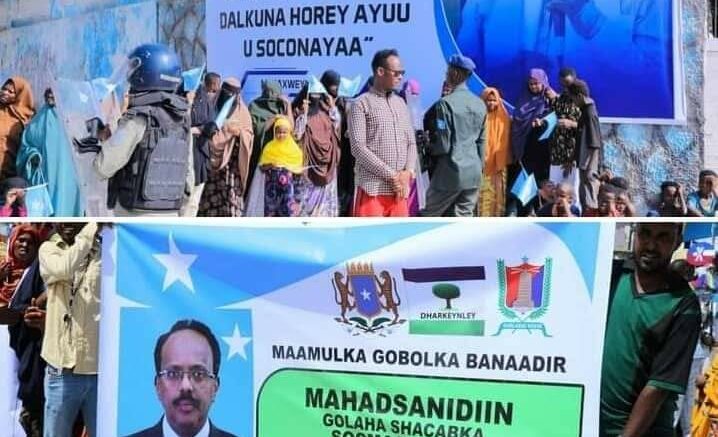Two years ago, the residents of Mogadishu found themselves mobilized by the leadership of the Banadir Region, rallying behind a proposed two-year extension and the appointment of thirteen senators for the Banadir region, a move sanctioned by the federal parliament.
Fast forward to the present day, and once again, the people of Banadir are being called to action, this time in response to current Somalia president Hassan Shiekh Mahamoud’s illegal amendments to Somalias provisional federal constitution.
In a familiar turn of events, Hassan’s actions have prompted a contrived call for public support, echoing the tactics employed by former President Farmaajo. However, it seems history is repeating itself, as Hassan Sheikh follows in his predecessor’s footsteps, despite their failures.
Yet, amid this ongoing political saga, under Hassan’s leadership, Somalia finds itself stagnating, with little progress made on critical national issues. The fight against terrorism, the establishment of a national army, and the pursuit of inclusive reconciliation among the Somali people remain unresolved.
Furthermore, it is all but certain that Hassan Sheikh’s term will conclude without Somalia reaping the benefits of key milestones such as debt relief and the lifting of the arms embargo.
As Somalia’s national politics continue to oscillate between progress and setbacks, the nation finds itself in a state of political gridlock, taking one step forward only to be pushed two steps back.

